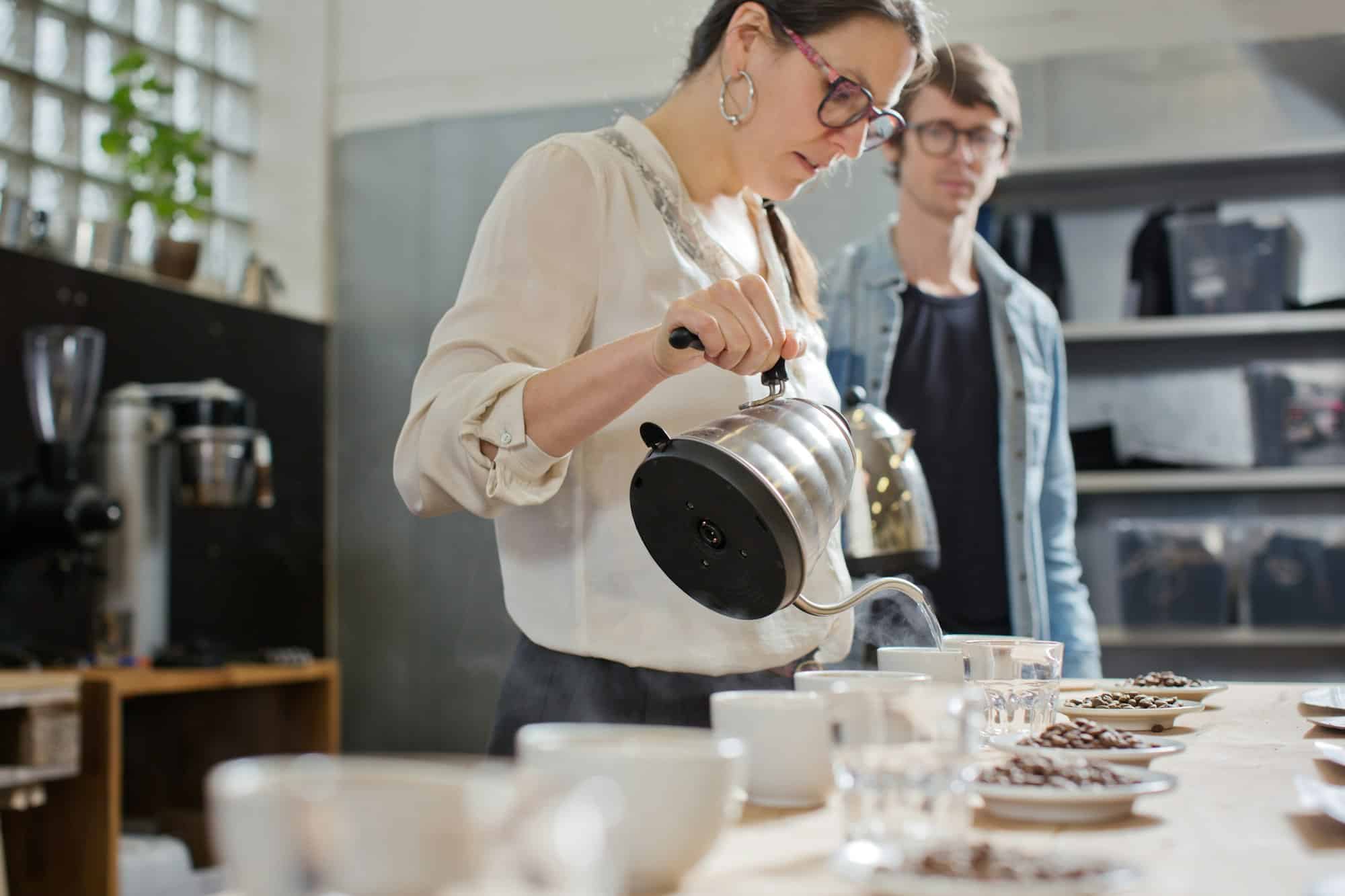What Are the Best Practices for Starting a Specialty Coffee Roastery in London?

The aroma of freshly roasted coffee beans wafts through the air. You’re not just in any regular coffee shop. You’ve stepped into a specialty coffee roastery, where every cup is an experience worth savoring. But what does it take to start such a business? In the city of London, where the coffee market is diverse and discerning, establishing a specialty coffee roastery is no mean feat. This article will explore the best practices for starting a roastery in London. We’ll delve into the importance of sourcing quality beans, mastering the art of roasting, getting suitable certification, and more.
1. Understanding the Market
Before embarking on your business venture, it’s crucial to comprehend the coffee market in London. Here, coffee is not just a beverage; it’s a way of life. The city throbs with a vibrant coffee culture, with thousands of coffee shops dotting the city, each with its unique character and clientele. The specialty coffee scene, though less populous, is burgeoning, riding on the wave of consumers seeking unique and high-quality coffees.
A lire en complément : What Are the Best Strategies for Personalized Health Care Marketing in the UK?
Do your market research. Know your potential customers: what they prefer, how much they’re willing to pay, and where they usually get their coffee. Ascertain if there’s a gap in the market that your roastery could fill. It could be a specific type of coffee missing, an unmet demand for locally roasted beans, or a lack of coffee shops in an area.
2. Sourcing Quality Green Beans
The foundation of great coffee lies in quality green beans. This means working directly with coffee farmers or reliable suppliers who can provide beans that meet specialty coffee standards. This endeavor may require significant time and effort, but it’s a crucial step in establishing the quality your customers will come to expect from your roastery.
A lire en complément : How Can UK Online Education Platforms Ensure Accessibility for Users with Disabilities?
You’ll also need to consider the types of beans you want to roast. Choices range from single-origin beans that highlight the unique characteristics of the region they’re grown in, to blends that feature a mix of flavors.
It’s also worth mentioning that sustainability is important to many consumers in Europe. Therefore, sourcing your beans from ethically run farms and using environmentally friendly roasting processes can give your business a distinct edge.
3. Mastering the Art of Roasting
Roasting is the heart of any coffee roastery business. It’s where green beans are transformed into the aromatic, flavorful delights that coffee lovers crave. To produce the best coffees, you must understand the intricacies of the roasting process.
The roast profile – the temperature at which you roast the coffee beans and for how long – significantly impacts the coffee’s flavor. It’s up to you, the roaster, to decide what the best profile is for each type of bean. This requires experience, experimentation, and a keen palate.
Acquiring a high-quality coffee roaster is essential. The roaster will be your shop’s workhorse, so invest in a reliable and efficient model that fits your expected production volume.
4. Getting the Necessary Certification
In the specialty coffee business, certification is more than just a nice-to-have; it can be a significant differentiator. Certifications such as Fair Trade, Rainforest Alliance, or Organic attest to the quality and sustainability of your coffee, enhancing your brand’s reputation among eco-conscious consumers.
Additionally, you might want to consider getting certified as a Q Grader. A Q Grader is a highly trained and certified coffee cupper who evaluates coffee through sensory analysis. This certification will not only boost your credibility but also sharpen your coffee tasting skills.
5. Building a Brand That Resonates
Lastly, building a robust brand is essential for a specialty coffee roastery. Your brand communicates your mission, values, and what sets you apart from other coffee shops. An effective branding strategy can make your roastery memorable and build a loyal customer base.
Your brand should be reflected in everything from the name and logo of your roastery to the interior design, packaging, and even the type of music playing in your shop. Customer service is another important facet of your brand. Offering outstanding service can make customers feel valued and appreciated, which can lead to repeat business and positive word-of-mouth referrals.
Starting a specialty coffee roastery in London is a serious business that requires passion, expertise, and a deep understanding of the market. By sourcing high-quality green beans, perfecting your roasting processes, obtaining the right certifications, and building a powerful brand, you can establish a successful roastery that delivers a unique coffee experience to your customers.
6. Devising a Solid Business Plan
Constructing a solid business plan is a vital step when starting a specialty coffee roastery in London. It provides a roadmap for your business, clarifying your objectives and outlining the strategies you’ll employ to achieve them. Your business plan should include details such as your business structure, target market, marketing plan, financial projections, and potential challenges and how you plan to overcome them.
In the context of a coffee roastery, your business plan should also cover sourcing of green coffee beans, your roasting process, and how you plan to keep up with food safety regulations in the United Kingdom. For instance, you might include information on the equipment you plan to invest in to ensure quality roasting, as well as how you plan to monitor food safety in your roastery.
Don’t forget to focus on your unique selling points (USPs). Given the multitude of coffee shops in London, it’s crucial to identify what makes your roastery different. Whether it’s your commitment to ethical sourcing, your innovative roasting methods, or your unrivalled Colombian coffee, your USPs can help you stand out in the crowded coffee market.
7. Networking and Building Relationships
The specialty coffee industry thrives on relationships. As a new roastery, forming connections with key stakeholders in the coffee world is significant. Attend industry events, join coffee forums online, or connect with other roasters through social media. Networking can open doors to exciting opportunities, provide fresh insights, and help foster a sense of community in the industry.
Beyond networking with peers, building relationships with your customers is equally important. Engage with your customers, learn about their coffee preferences, and aim to deliver an experience that goes beyond just serving the best coffee. A loyal customer base is the backbone of a successful roastery.
Conclusion
Starting a specialty coffee roastery in London is an exciting yet challenging task. However, with a deep understanding of the coffee market, sourcing quality coffee beans, mastering the roasting process, obtaining necessary certifications, creating a compelling brand, devising a sound business plan, and building strong relationships, you’re well on your way to establishing a thriving roastery. As you embark on this journey, remember that your passion and commitment to quality will be the key ingredients to brewing success in the competitive European market. With a good dose of determination and a dash of creativity, your coffee roastery can become an integral part of London’s vibrant coffee culture.
